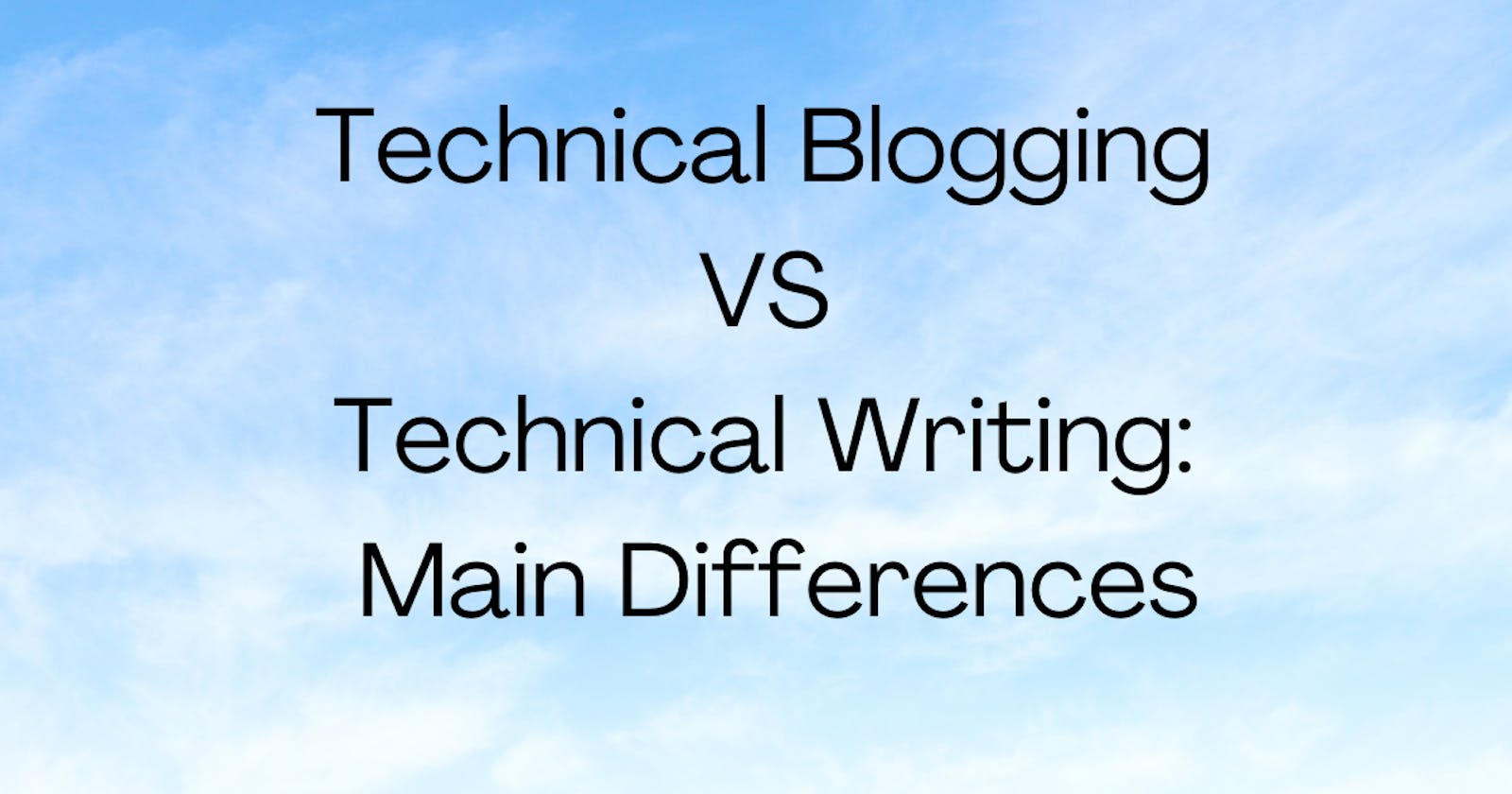Table of contents
Technical blogging and technical writing are often used interchangeably but are two different writing styles.
Even though they share a common goal of effectively communicating with the reader and wanting to provide value, blog writing and technical writing serve two different purposes.
This blog will explain the differences between technical blogging and technical writing.
Purpose

Technical blogging aims at engaging the reader and providing valuable information in an entertaining and conversational manner.
Technical bloggers want to connect with the audience and create a sense of community. Technical bloggers adopt techniques such as descriptive language, catchy headlines, and engaging introductions. Technical bloggers tend to write content that's SEO-optimized.
Technical writing's main purpose is to convey complex information clearly and concisely.
Technical writers ensure the reader understands and can effectively use the presented information. Technical writing requires high precision and attention to detail to ensure the content is accurate, logical and easy to follow.
Technical writers also focus on usability and accessibility. They organize content to allow users to find the information they need and navigate the content effortlessly.
Read 3 Things You Can Do To Improve Your Technical Writing Skills to learn more.
Voice

Technical blogging is a style of writing that allows you to share your voice. Your writing style represents your voice and your thoughts.
In technical blogging, you use pronouns such as "you", "I", and "we". Some blog writers also use slang and swearing in their writing style to better relate and engage the user. Technical blogging tends to be more wordy compared to technical writing.
Technical writing is different. Technical writing is a sterile form of writing whose main focus is to guide the user into learning how to use a product. You use the company's voice to address the user in technical writing.
An example to show you the difference between blog writing and technical writing is this:
Technical blogging: "I recommend you use X to achieve Y".
Technical writing: "X company recommends using X to achieve Y".
Technical blogging: "Make sure you install X to view Y".
Technical writing: "Install X to view Y".
Read Top Skills To Become A Tech Blogger to learn more.
Structure

Technical blogging doesn't follow a strict structure. Often, bloggers use their voice as a style guide. Technical bloggers have a flexible and creative approach to structure and organization.
Technical bloggers can experiment with different formats like listicles, how-to guides, etc. The structure is driven by what they want to achieve with their content.
In technical writing, writers follow a well-defined style guide. The company's Head of Content (or someone senior) usually creates this style guide. Each page needs to follow a specific structure.
Technical writers follow industry-specific terminology, ensure content is organized logically and follow a step-by-step approach.
Read Why User Documentation is Essential in Software Development to learn more.
Tone

In technical blogging, the tone is informal and conversational. Technical bloggers adopt a friendly and relatable tone as if conversing with the reader.
Technical bloggers know how to convey empathy through their words, establish a connection and build trust with the audience.
In technical writing, the tone is formal and precise. The tone is objective and focused on delivering information accurately and concisely.
Technical writers prioritize clarity and avoid adding information (or words) that provide no value to the reader.
Conclusion
After reading this article, you know the difference between a tech blogger and a tech writer. Which one are you?
P.S.: if this article was helpful to you, subscribe to my FREE weekly newsletter.
Until next time!

